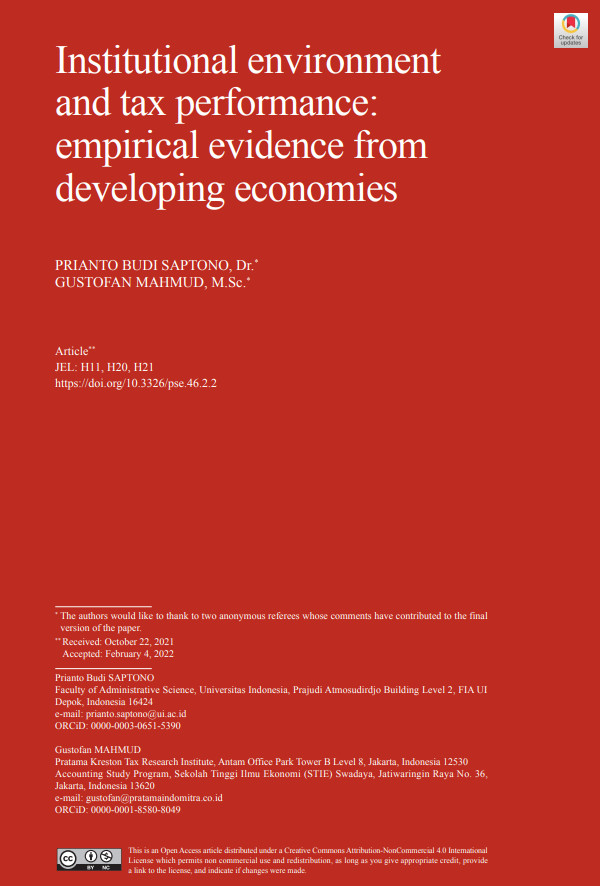Institutional environment and tax performance: empirical evidence from developing economies
DOI:
https://doi.org/10.3326/pse.46.2.2Keywords:
corruption, governance, tax revenueAbstract
Unlike its predecessor studies, this paper investigates the contemporaneous and lagged effects of institutional variables on tax performance, using unbalanced panel data from 79 developing countries for the 2002-2019 period. The instrumental variable (IV) and system-generalized method of moments (SGMM) estimation models were employed in this study to address potential endogeneity and specification biases in the estimation model. Generally, this study found that countries with low corruption levels and good governance quality could produce more tax revenues. Moreover, the lagged effects of institutional variables, which are much more substantial than their contemporary effects, provide meaningful insight. Efforts directed at fighting corruption and improving the quality of governance must be carried out as early as possible to obtain optimal tax revenues in the future. These efforts can be taken by streamlining tax administration, so that opportunities for bribery and corruption can be reduced.

Additional Files
Published
How to Cite
Issue
Section
License
Copyright (c) 2022 Prianto Budi Saptono, Gustofan Mahmud

This work is licensed under a Creative Commons Attribution-NonCommercial 4.0 International License.








